

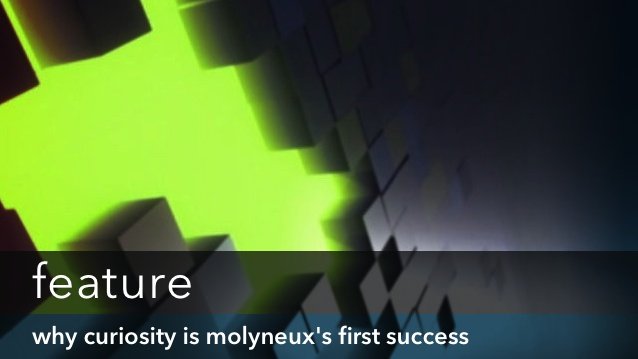
Peter Molyneux has a habit of promising more than he can deliver. His storied career is punctuated by a predictable course of unsustainable commitments, meager productions and ending in a mass of apologies before beginning the cycle anew. It's still hard to dislike the man; with each new project he discusses he sincerely appears as if he's trying to push boundaries, but is let down by what can be achieved in a limited production schedule. We're so willing to accept his visions because we're so captivated by anyone's drive to produce more interesting content than we've come to expect in a harsh, solely profit driven, AAA industry. It would be more advantageous to not experiment, not to stray outside of the public's expectation of the medium, but that's not who he is and that's really not the point of making games.
His fault is less in consistently selling us a bill of tarnished goods, more in always seeing potential value that never emerges. His existence is a way of best understanding the filter between a pure, well intentioned idea and what the coarse reality of game production turns it into.
It took leaving Microsoft, starting 22 Cans and releasing Curiosity until one of is creations has actually delivered more than initially expected. On the surface it's a game solely about chipping away at a cube until reaching the secret chewy centre, but what it's actually about is lumbering needlessly toward a goal that is entirely uncertain and useless while sacrificing everything else in the attempt.
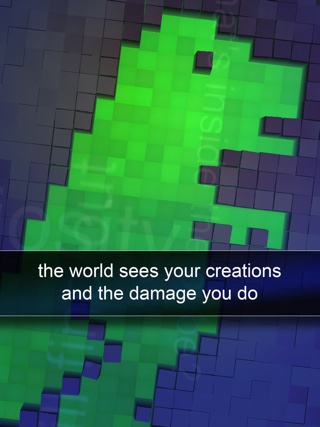 Whatever is actually within the cube is unimportant. When users eventually break through the layers and reach the centre only the final person to interact with the cube will be aware of what's inside. The terms of service suggest it's a video, which immediately had me assuming it's a vivid image of Moleneux's glorious liver-spotted balls. It might as well be. I don't need to see his balls. If no one told me such a video existed I wouldn't feel any necessity to create it. It's more important that we don't know for certain, that we have the promise that we can know and, as a result, the only reason we'd hunt for it is because we can eventually ensure it.
Whatever is actually within the cube is unimportant. When users eventually break through the layers and reach the centre only the final person to interact with the cube will be aware of what's inside. The terms of service suggest it's a video, which immediately had me assuming it's a vivid image of Moleneux's glorious liver-spotted balls. It might as well be. I don't need to see his balls. If no one told me such a video existed I wouldn't feel any necessity to create it. It's more important that we don't know for certain, that we have the promise that we can know and, as a result, the only reason we'd hunt for it is because we can eventually ensure it.
That's the only prescribed purpose that Curiosity creates; to figure out the useless mystery, but it also hands over a method for emergent artistic expression. Curiosity gives us a tool for carving out a mark on this object that would, if left alone, would theoretically live forever in this digital application. That's something we could all see and appreciate, yet mechanically we're assured to throw away.
Hours after launch the cube is filled with markings of Pac-Man and Assassins Creed logos and Penises and attempts to say Hello. The cube is a blank canvas for the entire world to leave each other messages. There'll be less of these as time passes; at the current rate the entire cube will be destroyed within three days. To break through to the core we have to chip at it layer by layer, meaning that everything drawn on it will soon be covered up by the attempt at progress.
Curiosity incentivises destruction, more-so, it incentivises ordered destruction. Players get coins for clearing blocks, but get more coins for clearing an entire screen in one go. They trade these coins for ways to cause destruction with greater efficiency. As much as Curiosity allows for personal expression, it does so while offering the knowledge that whatever you make will eventually be ripped apart so that the game can move closer toward its climax.
There's an end goal, but it's the least interesting part of the experience. The knowledge that we're all working together toward something that there's a chance we'll never understand is the most interesting part. That some are creating useless art with greater immediate value and others are throwing it away on the chance we might receive something more.
Most likely, the content of the cube is just a simple message telling us that the interaction and activity was the real prize. If this is true, even if the final user chooses not to disseminate the video, this fact remains the only experience in Curiosity most of us will have at all.
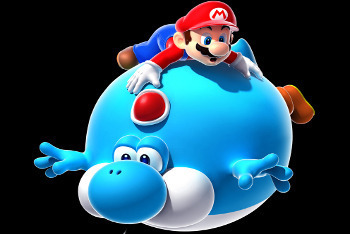
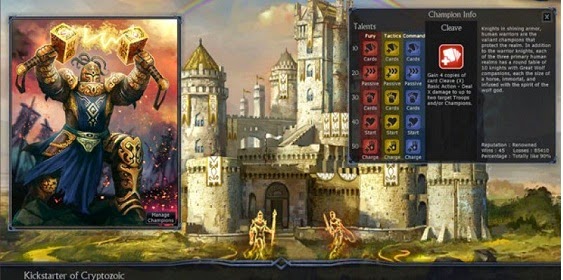
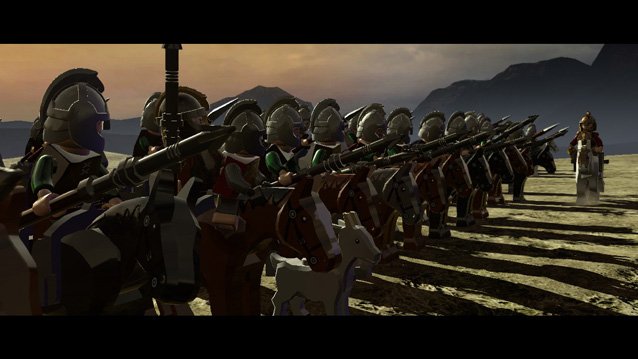

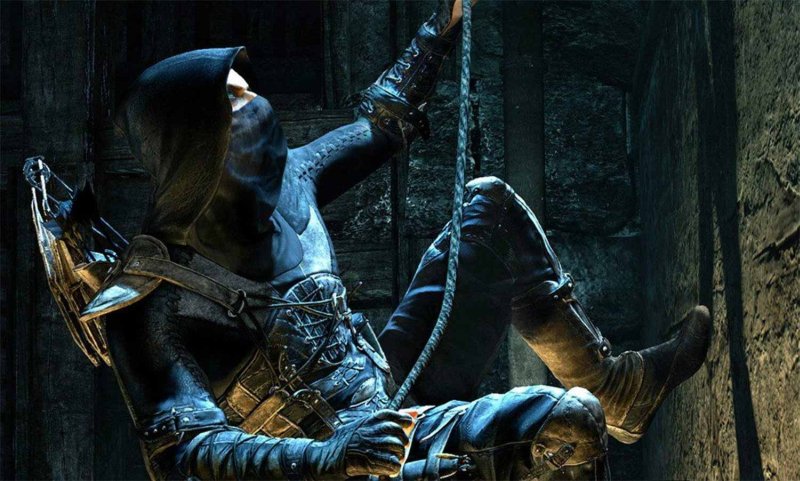 Thief 2014 Unlimited Money Cheat / Glitch
Thief 2014 Unlimited Money Cheat / Glitch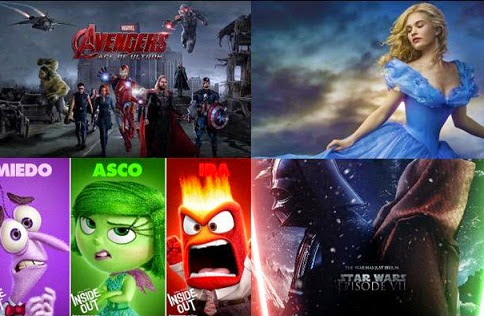 Upcoming Disney - Pixar Movies (Calendar) 2015
Upcoming Disney - Pixar Movies (Calendar) 2015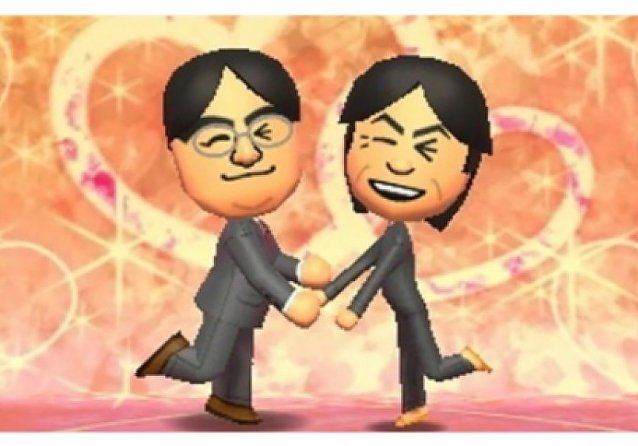 Talking Point: Nintendo Fans Have A Social Responsibility, And They Failed To Meet It
Talking Point: Nintendo Fans Have A Social Responsibility, And They Failed To Meet It Metal Gear Solid V Guide - How to Get Snake's Raiden Outfit
Metal Gear Solid V Guide - How to Get Snake's Raiden Outfit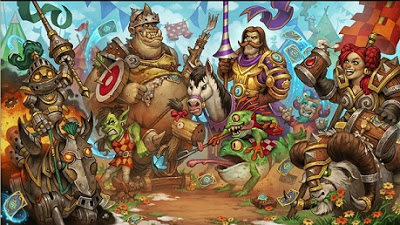 Best Legendary Cards in Hearthstone: The Grand Tournament
Best Legendary Cards in Hearthstone: The Grand Tournament